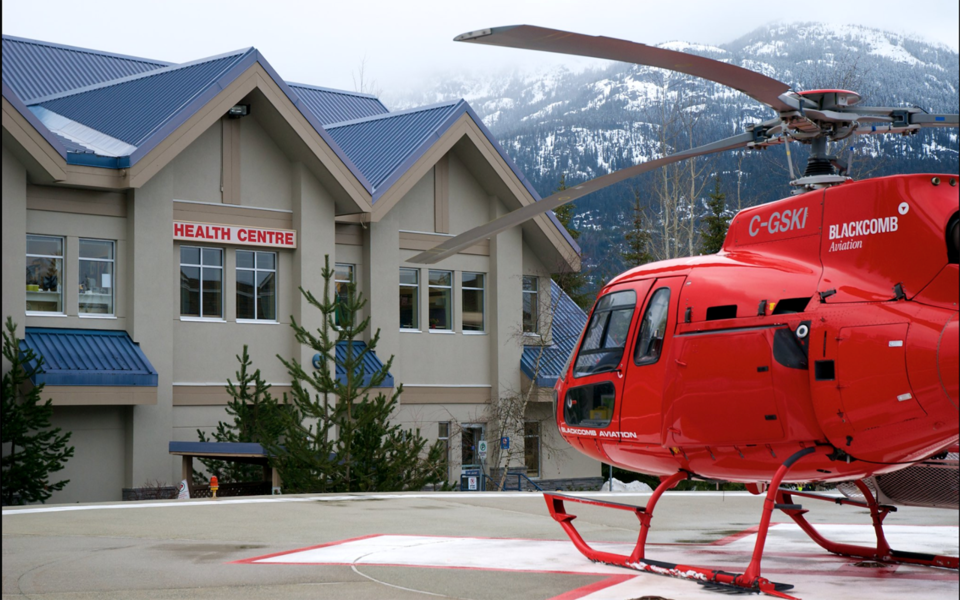Stay away from the Whistler Health Care Centre unless it’s for urgent care—and phone ahead before you arrive, when possible.
That’s the message from the medical director of the Whistler Health Care Centre (WHCC) and the lead family physician at the Whistler Medical Clinic as the two facilities seek to look after Sea to Sky patients in the most effective way possible.
“We really want to reassure Whistler residents that all of the local physicians have a system in place for everyone to access medical care during this uncertain time,” said Dr. Karin Kausky, who is part of the Whistler Medical Clinic, located in the WHCC and co-chair of the Sea to Sky Divisions of Family Practice.
Emergent care will continue to be offered at the WHCC. If possible, those requiring urgent care are asked to contact the centre before arriving at 604-932-4911 for guidance. Emergent care patients will be screened at the door and directed appropriately.
Patients will still be able to access non-urgent, primary care through their family physician or a newly set-up virtual clinic.
“We’re looking to decrease the number of people who show up banging on the doors asking for care. That has to be counter-balanced with the reality that Whistler Health Care Centre is open for emergencies. I don’t want people staying at home with chest pains because they don’t want to burden the system,” explained Dr. Bruce Mohr, medical director at the WHCC.
“People can call the ambulance and people can call us at the usual number and they will be given advice over the phone. Sometimes that further screening we’re able to do will allow them not to have to come in. But there will be those that will have to come in.”
Mohr noted that all medical services, such as lab work and medical imaging, will continue, but will be prioritized for “the patients who really need them.”
“Otherwise there is some triaging being done so that elective lab, elective medical imaging, these are things that are being postponed and will be done in the future. But urgent tests, whether it’s outpatient testing or inpatient testing, those are being completed,” he added. “Patient care shouldn’t end up being compromised.”
For those requiring non-urgent care
As a way to manage the influx of patients and reduce the strain on local resources, patients in need of non-urgent, primary care are asked to first contact their family physician by phone as they normally would.
“For most people, this means calling the office and now booking a virtual or phone appointment,” Kausky said.
For those without a family physician, a virtual clinic has been set up by the Sea to Sky Divisions of Family Practice at www.divisionsbc.ca/sea-sky for patients to consult with a GP remotely.
If, after consulting a physician, a patient requires an in-person visit, that will be arranged—with the necessary precautions in place to prevent the spread of infection.
“Our reasons for doing this is for physician safety, patient safety and to try to be good stewards of scarce resources,” noted Kausky.
“It’s been very busy and we’re all operating in new systems, but I think we really have a pretty robust system in place that’s going to ensure that we can look after everybody.”
For the time being, Mohr said there are enough supplies and staff at the WHCC to accommodate the growing demand for care—although the situation is constantly in flux.
“It’s been fine,” he said of managing the strain on resources. “There are emergency operations centres being set up at many different levels. That’s how we deal with the flow of materials and staff so that we can be prepared.”
On the frontlines of the pandemic, both Mohr and Kausky said staff at the WHCC and medical clinic are dealing with the additional stress through maintaining clear and open lines of communication.
“[They’re dealing with it] like the professionals they are,” Mohr said. “What we’re finding is our anxiety levels are going down simply by really communicating effectively, indicating what our concerns are, and getting together virtually to express our concerns and then deal with them in a collective fashion.”
Kausky reiterated that the public also needs to do its part in order to minimize the stress on Whistler’s healthcare system.
“We’re working tirelessly to make it safe for you; now we need you to work tirelessly to keep yourselves and us safe,” she said. “Please continue to abide by the requests of the provincial health officer around social physical distancing and staying home.”
Information on social distancing and COVID-19 can be found at vch.ca, or at bccdc.ca.




